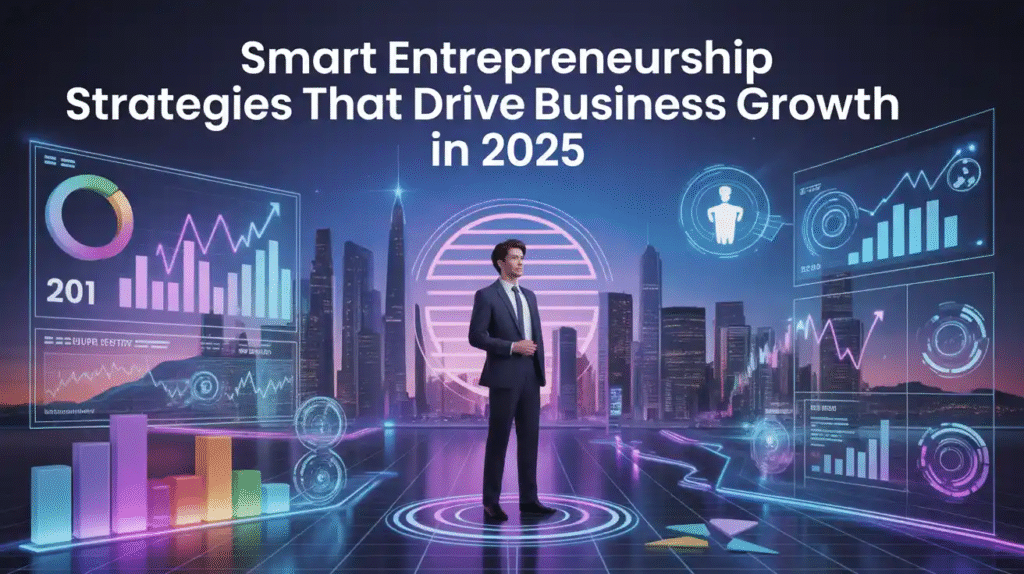Every startup story start with just one little spark. Some people call it intuition, others just call it a random thought that dont go away. But the truth is, no matter how big the company looks today, it started with someone scribbling an idea on paper, or talking about it over coffee, or just noticing something in daily life that felt wrong and needed to be fix. That’s the beginning point. But the distance from that small idea to actually creating a startup that makes real impact that is a long messy road. And this is where an Entrepreneurship Guide becomes important, because ideas are cheap but execution is everything.
Why Entrepreneurship Feels Like Jumping Without a Net
When you first start launching new ventures, you feel a mix of excitement and panic. Excitement because you’re building something that never existed before, panic because nobody gives you the instructions. Most new founders quickly realise that Google search results don’t exactly solve the chaos of running a business. You can read hundreds of startup success tips, but when you’re in the middle of running out of money, or your product isn’t working like you imagined, or customers don’t care… all those tips look like motivational posters.
But that’s part of the game. That is why entrepreneurship is both crazy and beautiful. It pushes you beyond your limits. You face rejections from investors, customers laughing at your idea, friends telling you maybe it’s time to get a “real job.” But if you survive through that, you get to see your idea come alive. And when it finally works, it’s not just about money. It’s about proving to yourself that you built something real.
The Entrepreneurial Mindset – What Really Matters
Many people think business is only about having innovative business ideas. They believe if you just get one genius idea, success will come running. But reality is very different. Ideas alone are nothing. Execution matters, and behind execution is mindset.
An entrepreneurial mindset is like having a lens through which you see the world. You start noticing problems everywhere and think “how can I fix this?” instead of “oh that’s not my problem.” You start becoming comfortable with uncertainty. Most people hate risk they want stable jobs, fixed income, clear career path. Entrepreneurs, on the other hand, learn to live with chaos. They don’t have all the answers, but they still move forward.
One important part of the mindset is persistence. There’s a famous stat that 9 out of 10 startups fail. But that doesn’t mean the founders failed as people it means they are learning faster. Most successful companies today are not first attempts. Founders usually had two or three failures before they finally cracked the right formula. That’s why persistence is often more important than the original idea.
Where Do Innovative Business Ideas Come From?
People often ask, where do ideas come from? The truth is, most ideas are born from frustration. Think about Uber: someone standing in rain, struggling to find a taxi. Or Airbnb: people couldn’t afford expensive hotels during conferences, so they thought of staying at someone’s house. These are not random genius moments, they are everyday problems.
When searching for your own startup idea, don’t force it like you’re trying to invent something from scratch. Instead, look around. What do people complain about? What service feels outdated? What technology gap makes life harder? That’s where innovative business ideas hide.
And once you have that idea, test it small. Don’t waste 12 months making the perfect product. Just create something quick what we call MVP (Minimum Viable Product). It might be ugly, broken, but it shows the core value. Then you ask real people to use it. If they show interest, you move forward. If they don’t care, you pivot. That’s how innovation works in real life.
Startup Success Tips That Actually Matter
Forget the glossy magazine advice. Real success tips for startups are more raw:
- Stay lean. Don’t waste money on fancy office or 10 people staff in the first month. Many businesses burned because of unnecessary expenses.
- Build with users. Don’t hide your product until it’s perfect. Show it early, get feedback, let users shape it.
- Hire people better than you. It’s a cliché, but true. A weak team will sink the best idea, a strong team can fix even a broken one.
- Expect failure. Things won’t go like plan. Markets change, competitors appear, customers change their mind. Flexibility is survival.
- Don’t chase validation. Many entrepreneurs get stuck attending conferences, pitching everywhere just for attention. Real validation is customers paying.
These may sound simple, but these are the everyday survival rules that keep startups alive.
Funding for Entrepreneurs – The Blessing and the Trap
Money is fuel, but it can also be poison. Most new founders dream of raising big rounds from investors, but they don’t realise investors are not giving free cash. They take part of your company, sometimes your control.
There are different paths of funding for entrepreneurs:
- Bootstrapping: using your savings or early revenue. Tough but gives you full control.
- Friends & family: risky, because personal relationships mix with business.
- Angel investors: wealthy individuals who believe in your idea.
- Venture capital: professional firms, big money, but big pressure too.
- Crowdfunding: platforms where ordinary people support your product.
Each option has pros and cons. Bootstrapping is slow but independent. Venture capital can scale fast, but you might lose your voice in decision-making. The key lesson is: don’t take money before you need it. First prove your product works, then use funding to scale.
Building for Scale – The Real Test
Any startup can survive small. But the real question: can it grow without breaking? Scalability means your business can handle 100 customers the same way it handled 10. That needs systems, automation, and smart processes.
If every new customer needs manual effort, you can’t scale. That’s why tech startups scale better they build once, and millions can use the same product. Think Spotify or Dropbox. But even non-tech businesses can scale if they build right. For example, Starbucks scaled coffee shops globally by standardising every detail, from how baristas make coffee to the layout of the store.
So while building your startup, keep asking: what happens when demand doubles? When it’s 10x? If your model breaks at that point, you need to redesign. Scalability isn’t optional, it’s the difference between small business and global impact.
The Emotional Side Nobody Talks About
Here’s something most entrepreneurship guides skip: the emotional chaos. Founders face burnout, anxiety, self-doubt. One day you feel like you’re building the next billion-dollar company, next day you feel like a fraud who wasted years. That rollercoaster is normal.
Mental toughness is as important as strategy. Take care of your health, relationships, and mental peace. Many startups die not because the idea failed but because the founder broke down. Surround yourself with mentors, friends who understand, maybe even a therapist. Entrepreneurship is lonely, but you don’t have to suffer alone.
From Idea to Impact – What That Really Means
Impact means more than profit. Impact is when your startup changes habits, changes industries, or just changes lives for the better.
Think of how WhatsApp made communication almost free. Or how Shopify allowed small shop owners to sell globally. That’s real impact. It starts with a small spark, grows with persistence, shaped by customer feedback, fueled by funding, and multiplied by scalability.
But impact also comes from mission. A founder who only chases money usually burns out fast. The ones who last are those who care about the problem they are solving. They don’t just want to get rich, they want to leave a dent in the universe.
Final Words
So if you are holding an idea today, don’t let it sit in your notebook. Test it. Share it. Break it and rebuild it. Every great company looked impossible in the beginning. Nobody believed in Airbnb, Uber, or even Amazon. But persistence, mindset, and execution made the difference.
Use this entrepreneurship guide not as a strict rulebook but as a reminder:
- Mindset first,
- Ideas second,
- Execution always,
- Funding only when necessary,
- And scalability as the long game.
The journey from idea to impact is messy, emotional, and often unfair. But those who walk through it, those who refuse to stop even when failure knocks, they end up not just building companies they build stories, movements, and legacies.
So go ahead. Launch that venture. Make mistakes. Pivot. Learn. And maybe one day, your startup will be the one others call “impossible, until it wasn’t.”




